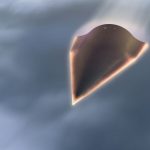
Congress looking at strengthening ties with Taiwan to counter expansionist China
Friday, June 03, 2016 by usafeaturesmedia
http://www.nationalsecurity.news/2016-06-03-congress-looking-at-strengthening-ties-with-taiwan-to-counter-expansionist-china

(NationalSecurity.news) By law, the U.S. is required to go to war to defend Taiwan if it is ever invaded – the most likely candidate is China, which still considers the island democracy just a renegade province.
It’s an alliance that should conjure up visions of a close working relationship between the Pentagon and Taipei.
But in reality, the Washington Times reports, Washington engages in a relationship that is almost aloof from Taiwan so as not to offend Beijing, which has refused to recognize the Republic of China (which Taiwan is officially known as) and continues to harbor notions about forcibly absorbing the island, which is about 100 miles away, at some point in the future.
While in the U.S., American leaders and policymakers are mostly standoffish, discouraging Taiwanese military personnel from even wearing their uniforms. But Sen. Dan Coats, R-Ind., is trying to life that dress code restriction with an amendment to the 2017 defense budget bill that will be debated on the Senate floor this month.
In fact, debating the Coats amendment is one of several steps that Congress is taking to force President Obama and future administration to more openly embrace Taiwan and bolster military-to-military relationships as China becomes more aggressive and assertive in the region by trying to dominate the South China Sea, a waterway in which trillions of dollars’ worth of trade travels annually.
As the Times noted further:
Both the House and Senate defense bills contain language that would elevate Taiwan from a second-class to a first-class ally. The 1979 Taiwan Relations Act is the law that requires the U.S. to come to Taiwan’s defense with arms and “services,” which analysts interpret as a requirement to fight China.
“Our defense policies with respect to Taiwan are over 37 years old,” Claude Chafin, communications director for the House Armed Services Committee, told the paper. “There have been significant developments in the Asia-Pacific landscape since the Taiwan Relations Act passed in 1979. The time is ripe to re-look at those policies, to encourage greater security cooperation and engagement with Taiwan’s military in areas of mutual security interest, and to continue to meet our commitment to enabling Taiwan maintains a sufficient self-defense capability.”
Longtime China watcher and expert Richard Fisher, an analyst at the nonprofit International Assessment and Strategy Center, said the law is clear on requiring the United States to arm Taiwan. But, he said, it does not mention military-to-military contacts that would bolster the alliance greatly.
“Congress is opening new doors by stipulating that Taiwan-U.S. military contacts cover specific areas of concern and allow Taiwan forces to participate in actual exercises with U.S. forces,” Mr. Fisher said. “It is one thing to sell weapons to Taiwan, but it is just as important that the U.S. transfer knowledge and methods to enable victory with those weapons. This element has been missing in U.S.-Taiwan military relations.”
The Senate Armed Services Committee’s legislation would require Defense Secretary Ash Carter to enhance relations between senior U.S. military officers and their counterparts in Taiwan.
The proposed law spells out the specific topics: threat analysis, military doctrine, force planning, logistical support, intelligence collection, operational tactics and disaster relief. Such exercises, briefings and meetings are to be carried out in both countries, the Times noted.
A second measure – a “sense of the Senate,” which is nonbinding – urges the White House to allow Taiwanese pilots participate in advance aerial combat training with the U.S. Air Force.
“If approved by the president, this would constitute the most substantive congressionally mandated enhancement to the U.S.-Taiwan relationship since the 1979 Taiwan Relations Act,” said Fisher.
Armed services committee chairman Sen. John McCain, R-Ariz., has said he wants to strengthen U.S.-Taiwan military ties and that he planned to visit the island’s new president, Tsai Ing-wen, this month.
- S., Russia and China embroiled in hypersonic missile race with winner-take-all stakes
- Pentagon: China is restructuring its military for war as it boosts troop levels near Indian border
- China lays out plans for militarizing disputed island as bid to dominate all of South China Sea continues
NationalSecurity.news is part of the USA Features Media network. Check out ALL our daily headlines here.







